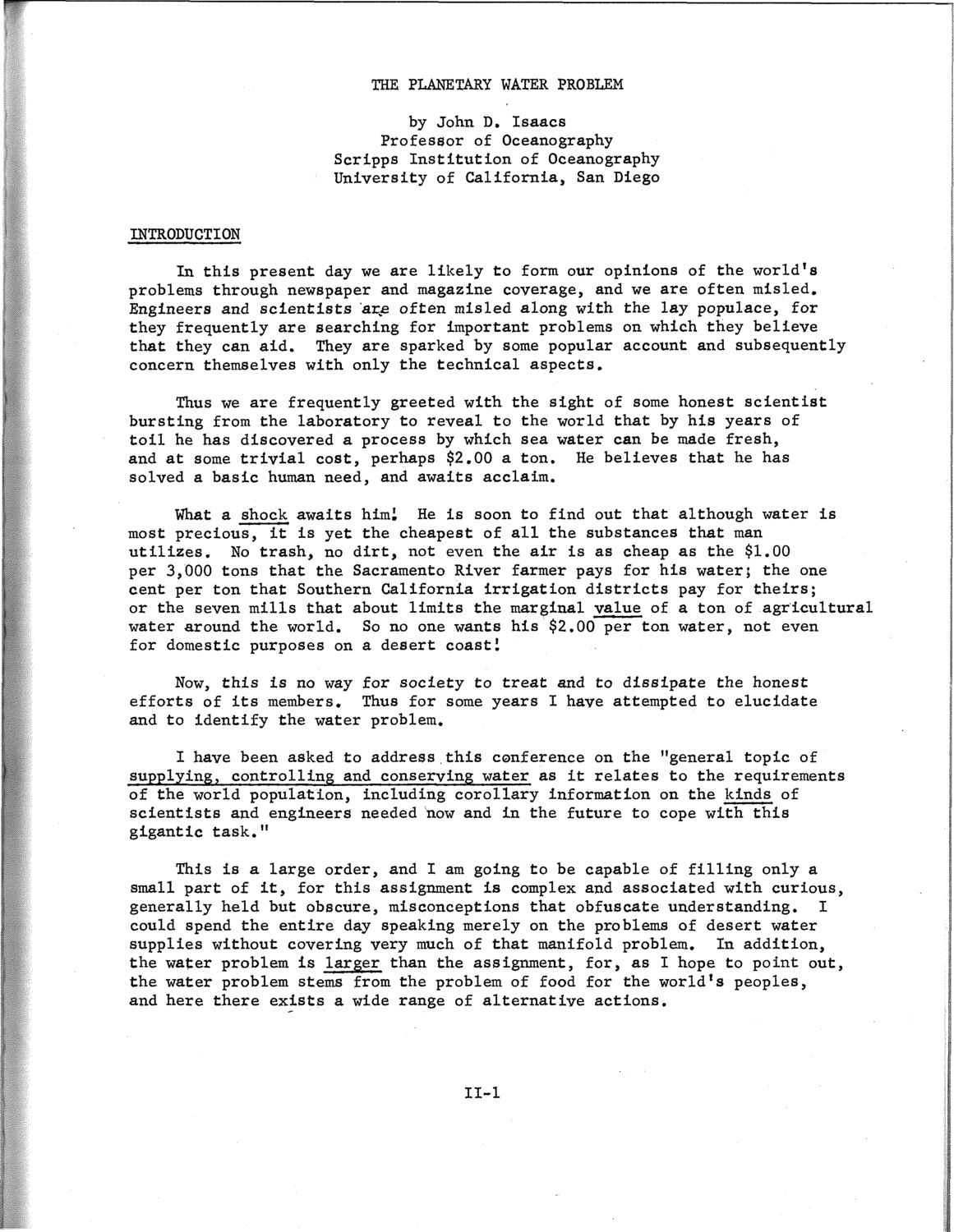| |
| |
Caption: SWE - Proceedings of the First International Conference of Women Engineers and Scientists
This is a reduced-resolution page image for fast online browsing.

EXTRACTED TEXT FROM PAGE:
THE PLANETARY WATER PROBLEM by John D. Isaacs Professor of Oceanography Scripps Institution of Oceanography University of California, San Diego INTRODUCTION In this present day we are likely to form our opinions of the world's problems through newspaper and magazine coverage, and we are often misled. Engineers and scientists ' re often misled along with the lay populace, for av they frequently are searching for important problems on which they believe that they can aid. They are sparked by some popular account and subsequently concern themselves with only the technical aspects. Thus we are frequently greeted with the sight of some honest scientist bursting from the laboratory to reveal to the world that by his years of toil he has discovered a process by which sea water can be made fresh, and at some trivial cost, perhaps $2.00 a ton. He believes that he has solved a basic human need, and awaits acclaim. What a shock awaits himi He is soon to find out that although water is most precious, it is yet the cheapest of all the substances that man utilizes. No trash, no dirt, not even the air is as cheap as the $1.00 per 3,000 tons that the Sacramento River farmer pays for his water; the one cent per ton that Southern California Irrigation districts pay for theirs; or the seven mills that about limits the marginal value of a ton of agricultural water around the world. So no one wants his $2.00 per ton water, not even for domestic purposes on a desert coast I Now, this is no way for society to treat and to dissipate the honest efforts of its members. Thus for some years I have attempted to elucidate and to identify the water problem. I have been asked to address.this conference on the "general topic of supplying, controlling and conserving water as it relates to the requirements of the world population, including corollary information on the kinds of scientists and engineers needed now and in the future to cope with this gigantic task." This is a large order, and I am going to be capable of filling only a small part of it, for this assignment is complex and associated with curious, generally held but obscure, misconceptions that obfuscate understanding. I could spend the entire day speaking merely on the problems of desert water supplies without covering very much of that manifold problem. In addition, the water problem is larger than the assignment, for, as I hope to point out, the water problem stems from the problem of food for the world's peoples, and here there exists a wide range of alternative actions. II-l
| |